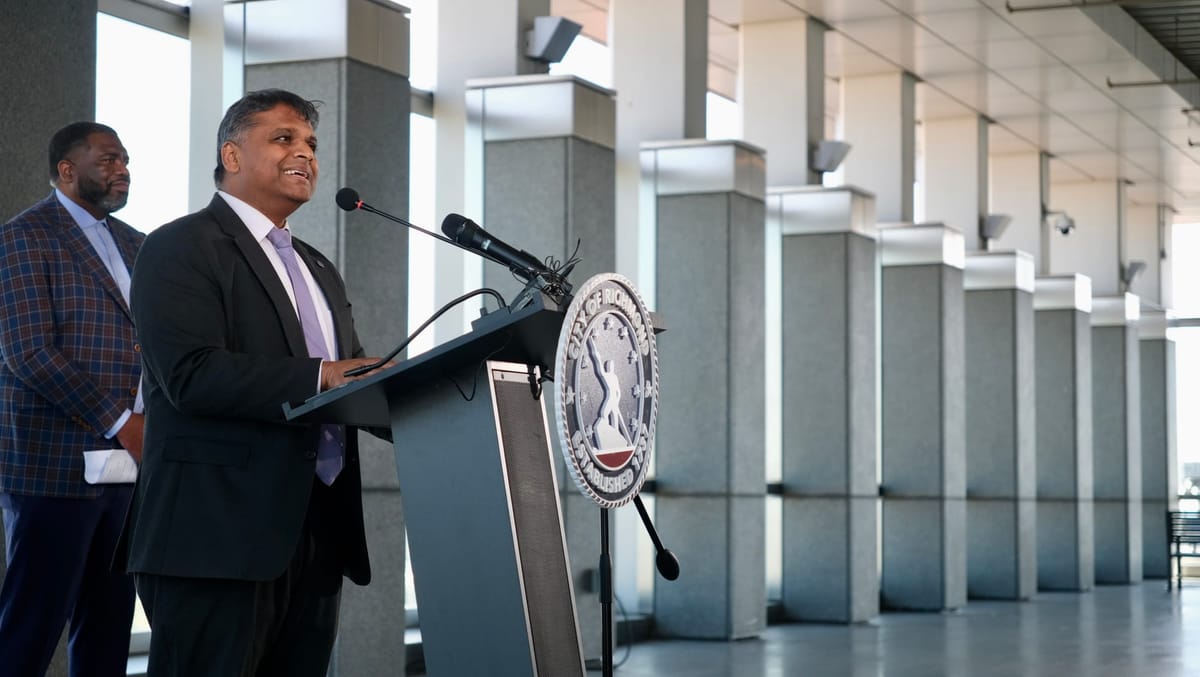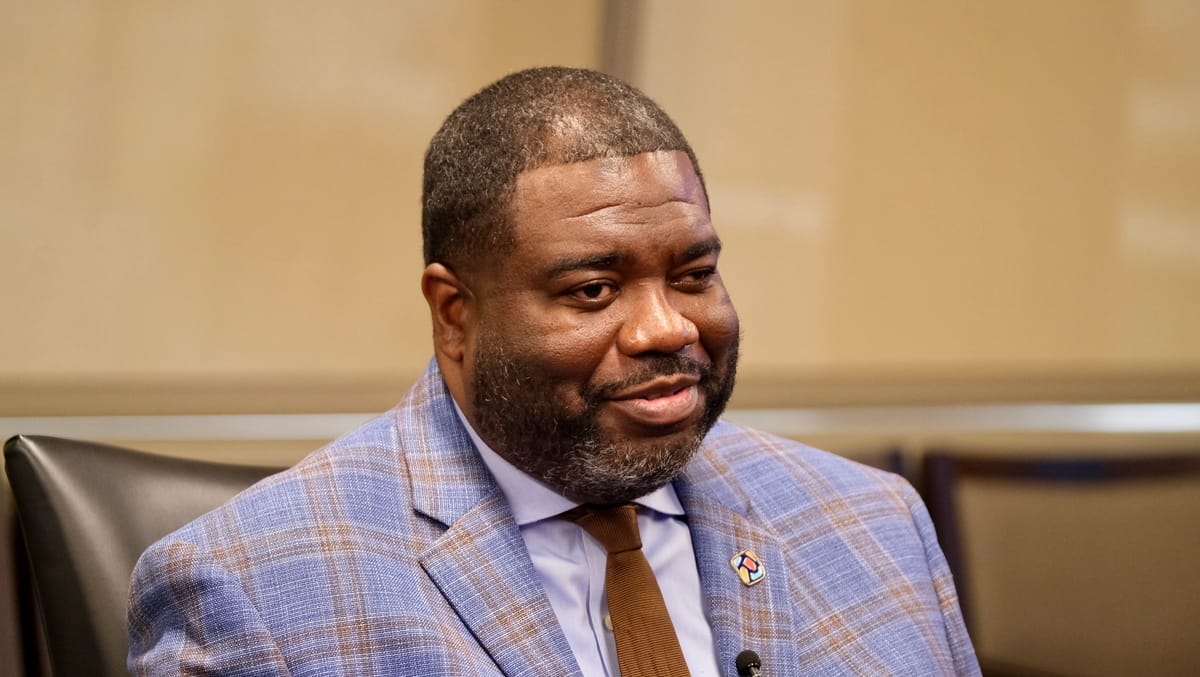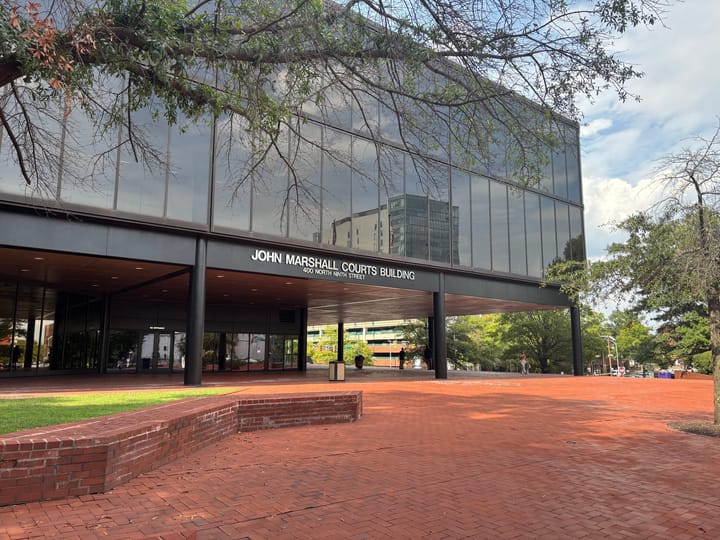Avula calls Council member’s criticism of CAO ‘wholly inappropriate’

Mayor Danny Avula told a Richmond City Council member it was “wholly inappropriate” of her to criticize Chief Administrative Officer Odie Donald II for saying he’ll refuse to follow an informal budgetary directive from the city’s legislative body.
In a Nov. 23 letter to Councilor Sarah Abubaker (4th District), Avula reiterated his stated commitment to getting “substantive input” from the Council on preparation of the city budget. But he said it’s not the Council’s job to tell him or his CAO what kind of budget it wants.
“City Council cannot give binding direction to the CAO, or to anyone in our administration, except through the instrument of law: adopted city ordinances,” Avula wrote. “On all other matters, the CAO takes direction from the mayor.”
In a letter last week, Abubaker accused the Avula administration of stifling the Council’s policymaking authority by withholding key financial information and sending a signal the mayor’s team will do what it wants regardless of what the Council thinks.

In his own letter, the mayor portrayed his stance as a defense of his team’s budget-writing powers laid out in the city charter.
At the heart of the separation of powers dispute is the more basic question of whether the city should give up extra revenue it could invest in public services in order to protect residents from the squeeze of higher taxes.
The Council is considering formally asking the Avula administration to give the body the option of lowering the city’s property tax rate next year in response to rising real estate assessments that have caused tax bills to increase dramatically over the last few years. Some Council members feel the city needs to act urgently to slow the growth in tax bills. Avula has said he supports the idea in theory, but won’t support tax relief until he’s sure it won’t jeopardize the city’s budget.
Under Richmond’s system of government, the mayor and the executive branch create a budget plan that needs final approval from the Council, which has a limited staff and a limited window of time to change the mayor’s budget before passing it.
Some Council members are trying to lay the groundwork to make lowering the rate a more realistic possibility next year by asking the Avula administration to prepare a lower-tax budget for Council’s consideration. The Council is expected to vote on the proposal at its Dec. 8 meeting.
However, Donald told a Council committee last week that he won’t prepare a budget with a lower tax rate even if the body asks for it.
The CAO’s comment inspired Abubaker to rally behind Councilor Stephanie Lynch (5th District) and Lynch’s request for a a budget built around a property tax rate of $1.16 per $100 of assessed value, 4 cents lower than the $1.20 rate preferred by Avula. According to city projections, that change would likely reduce city revenues by about $17.2 million, while saving a typical Richmond homeowner a little more than $150 on their yearly tax bill.
In her letter, Abubaker faulted the administration for resisting a proposal that she said only asks the mayor’s team to provide “information required to assess all options openly and fairly.”
“When Mayor Avula took office, his administration was welcomed as the beginning of a more transparent, partnership-driven Richmond,” Abubaker wrote. “However, the handling of recent fiscal matters has instead mirrored past patterns that erode trust: limited communication, a lack of timely information, and decisions presented without meaningful collaboration with Council.”
For Abubaker to suggest that the CAO’s comment meant he would “defy the will” of the Council, Avula said in his response, "misconstrues the Council’s authority laid out in our charter.”
“Given how the charter structures the responsibilities of our government, it is wholly inappropriate for you to criticize Mr. Donald for carrying out the responsibilities assigned to him by the charter,” Avula wrote to Abubaker.
Under the city charter, the chief administrative officer “serves at the pleasure of the mayor,” but the appointment of a CAO must be approved by the Council. The Council also has to sign off on the CAO’s salary.
Because mayors typically don’t attend Council meetings, the CAO is often the one speaking and responding to the Council on the administration’s behalf.
It’s generally not seen as a breach of protocol for the Council to ask the CAO for more information on various policy options. However, Lynch’s proposal goes further by asking the administration to take an initial step toward a specific tax rate.
The Council has a history of asking for things it wants the mayor to include in the budget.
The Richmond People’s Budget — a Council-led initiative that allows residents to vote on what city projects they’d like to see — has relied on a non-binding Council request for the mayor’s office to budget at least $3 million for the program.
In 2022, the Council passed non-binding budget requests asking then-Mayor Levar Stoney to increase funding for agencies under the Council’s control and create a new transportation-focused department in City Hall.
In 2020, the body approved a non-binding request asking for every future mayor to allocate at least $10 million annually to the city’s Affordable Housing Trust Fund. The Council also formally asked for that year’s budget to include two new animal-control officers to better enforce the city’s leash law for dogs.
When the Council asks for studies to weigh its policy options, those requests are often put in the form of non-binding resolutions that ask the chief administrative officer to carry out the Council’s wishes. One such resolution, which would ask Donald to organize a review of all city programs meant to prevent the displacement of Richmond residents, is on the agenda for the Council’s next meeting.
Though Avula indicated Council can only enforce its wishes through enacted ordinances, City Hall has a habit of not following enacted policies officials find inconvenient or unworkable.
The city stopped publishing a log of city payments, even though the city code requires publication of the data. The Council has passed numerous ordinances requiring reports be filed with the body about the operations of city government, but those requirements have routinely been ignored. The city also has not followed the Council’s enacted policies on allocating funding for affordable housing initiatives.
It’s not clear from Avula’s letter if his administration is declaring its opposition to all non-binding requests from the Council, or only on the politically sensitive topic of taxes. After this story was published, a city spokesperson said Avula's letter was only meant to clarify various roles as laid out in the charter.
"He welcomes discussion with Council around future requests, non-binding or otherwise," said spokesperson Mira Signer.
In the letter, Avula said his administration will always “follow established law” even if the Council chooses a different policy than what he prefers. He said he still hopes to craft a budget that reflects both his vision for Richmond as well as Council’s priorities.
“Nonetheless, that work, under our charter, must be undertaken under the direction of the elected mayor,” Avula wrote. “That is what we intend to do, and we look forward to delivering a FY27 budget for Council’s consideration this upcoming March.”
Contact Reporter Graham Moomaw at gmoomaw@richmonder.org
This story was updated after publication to include a new statement from the mayor's office.







